Yihang Cheng
IntentMiner: Intent Inversion Attack via Tool Call Analysis in the Model Context Protocol
Dec 16, 2025Abstract:The rapid evolution of Large Language Models (LLMs) into autonomous agents has led to the adoption of the Model Context Protocol (MCP) as a standard for discovering and invoking external tools. While this architecture decouples the reasoning engine from tool execution to enhance scalability, it introduces a significant privacy surface: third-party MCP servers, acting as semi-honest intermediaries, can observe detailed tool interaction logs outside the user's trusted boundary. In this paper, we first identify and formalize a novel privacy threat termed Intent Inversion, where a semi-honest MCP server attempts to reconstruct the user's private underlying intent solely by analyzing legitimate tool calls. To systematically assess this vulnerability, we propose IntentMiner, a framework that leverages Hierarchical Information Isolation and Three-Dimensional Semantic Analysis, integrating tool purpose, call statements, and returned results, to accurately infer user intent at the step level. Extensive experiments demonstrate that IntentMiner achieves a high degree of semantic alignment (over 85%) with original user queries, significantly outperforming baseline approaches. These results highlight the inherent privacy risks in decoupled agent architectures, revealing that seemingly benign tool execution logs can serve as a potent vector for exposing user secrets.
ReviBranch: Deep Reinforcement Learning for Branch-and-Bound with Revived Trajectories
Aug 24, 2025
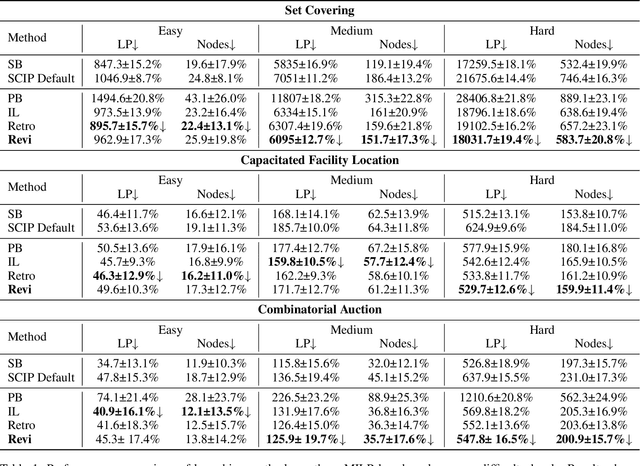

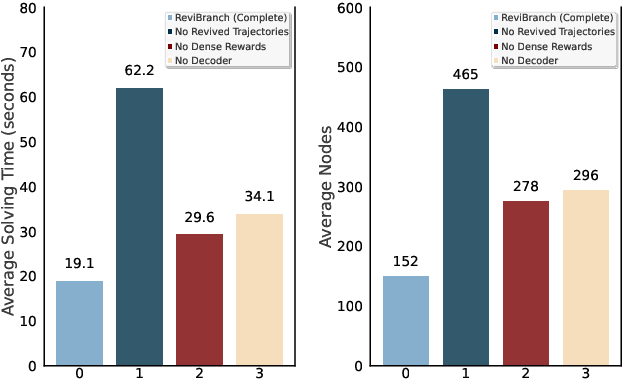
Abstract:The Branch-and-bound (B&B) algorithm is the main solver for Mixed Integer Linear Programs (MILPs), where the selection of branching variable is essential to computational efficiency. However, traditional heuristics for branching often fail to generalize across heterogeneous problem instances, while existing learning-based methods such as imitation learning (IL) suffers from dependence on expert demonstration quality, and reinforcement learning (RL) struggles with limitations in sparse rewards and dynamic state representation challenges. To address these issues, we propose ReviBranch, a novel deep RL framework that constructs revived trajectories by reviving explicit historical correspondences between branching decisions and their corresponding graph states along search-tree paths. During training, ReviBranch enables agents to learn from complete structural evolution and temporal dependencies within the branching process. Additionally, we introduce an importance-weighted reward redistribution mechanism that transforms sparse terminal rewards into dense stepwise feedback, addressing the sparse reward challenge. Extensive experiments on different MILP benchmarks demonstrate that ReviBranch outperforms state-of-the-art RL methods, reducing B&B nodes by 4.0% and LP iterations by 2.2% on large-scale instances. The results highlight the robustness and generalizability of ReviBranch across heterogeneous MILP problem classes.
Application-Driven Value Alignment in Agentic AI Systems: Survey and Perspectives
Jun 11, 2025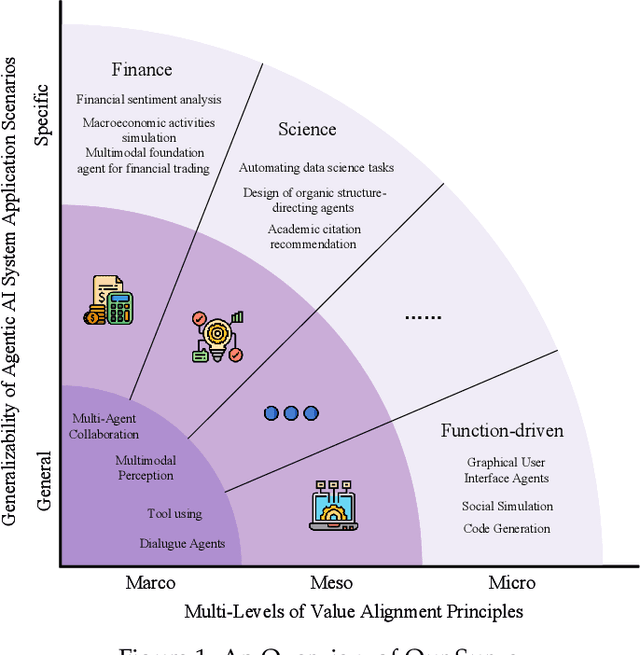
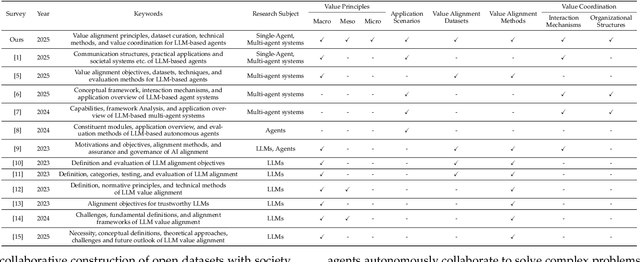
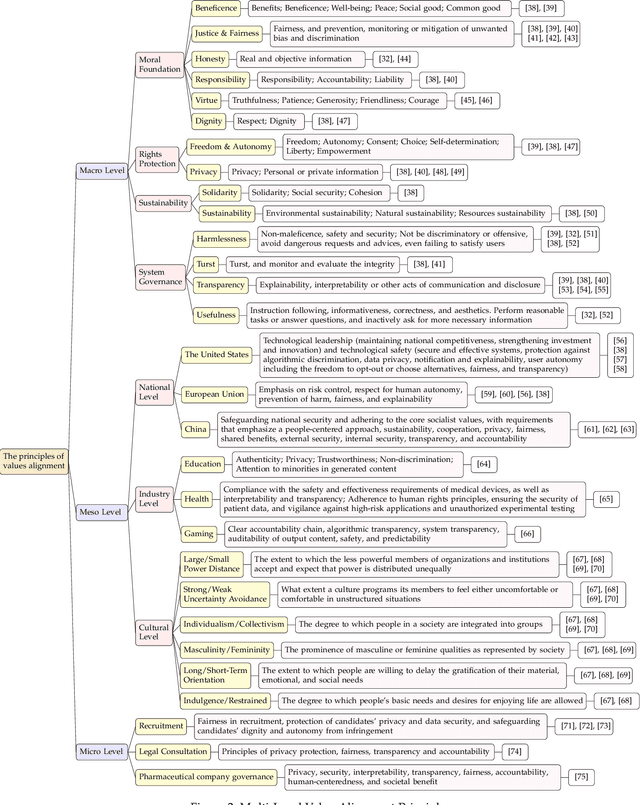
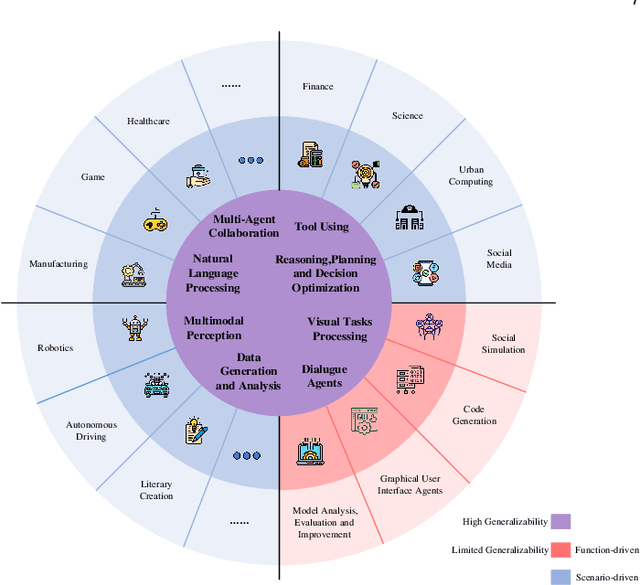
Abstract:The ongoing evolution of AI paradigms has propelled AI research into the Agentic AI stage. Consequently, the focus of research has shifted from single agents and simple applications towards multi-agent autonomous decision-making and task collaboration in complex environments. As Large Language Models (LLMs) advance, their applications become more diverse and complex, leading to increasingly situational and systemic risks. This has brought significant attention to value alignment for AI agents, which aims to ensure that an agent's goals, preferences, and behaviors align with human values and societal norms. This paper reviews value alignment in agent systems within specific application scenarios. It integrates the advancements in AI driven by large models with the demands of social governance. Our review covers value principles, agent system application scenarios, and agent value alignment evaluation. Specifically, value principles are organized hierarchically from a top-down perspective, encompassing macro, meso, and micro levels. Agent system application scenarios are categorized and reviewed from a general-to-specific viewpoint. Agent value alignment evaluation systematically examines datasets for value alignment assessment and relevant value alignment methods. Additionally, we delve into value coordination among multiple agents within agent systems. Finally, we propose several potential research directions in this field.
RemoteRAG: A Privacy-Preserving LLM Cloud RAG Service
Dec 17, 2024Abstract:Retrieval-augmented generation (RAG) improves the service quality of large language models by retrieving relevant documents from credible literature and integrating them into the context of the user query. Recently, the rise of the cloud RAG service has made it possible for users to query relevant documents conveniently. However, directly sending queries to the cloud brings potential privacy leakage. In this paper, we are the first to formally define the privacy-preserving cloud RAG service to protect the user query and propose RemoteRAG as a solution regarding privacy, efficiency, and accuracy. For privacy, we introduce $(n,\epsilon)$-DistanceDP to characterize privacy leakage of the user query and the leakage inferred from relevant documents. For efficiency, we limit the search range from the total documents to a small number of selected documents related to a perturbed embedding generated from $(n,\epsilon)$-DistanceDP, so that computation and communication costs required for privacy protection significantly decrease. For accuracy, we ensure that the small range includes target documents related to the user query with detailed theoretical analysis. Experimental results also demonstrate that RemoteRAG can resist existing embedding inversion attack methods while achieving no loss in retrieval under various settings. Moreover, RemoteRAG is efficient, incurring only $0.67$ seconds and $46.66$KB of data transmission ($2.72$ hours and $1.43$ GB with the non-optimized privacy-preserving scheme) when retrieving from a total of $10^6$ documents.
Generative Organizational Behavior Simulation using Large Language Model based Autonomous Agents: A Holacracy Perspective
Aug 05, 2024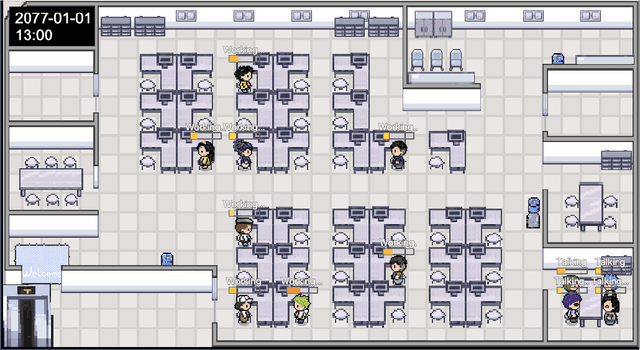

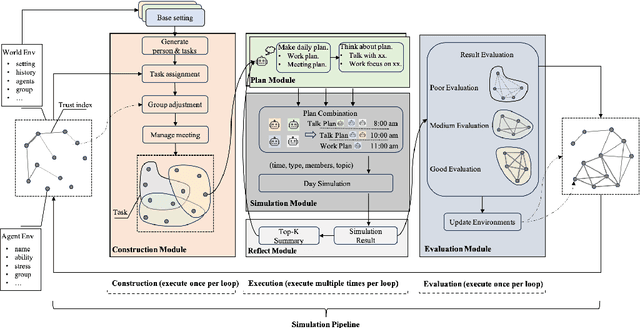

Abstract:In this paper, we present the technical details and periodic findings of our project, CareerAgent, which aims to build a generative simulation framework for a Holacracy organization using Large Language Model-based Autonomous Agents. Specifically, the simulation framework includes three phases: construction, execution, and evaluation, and it incorporates basic characteristics of individuals, organizations, tasks, and meetings. Through our simulation, we obtained several interesting findings. At the organizational level, an increase in the average values of management competence and functional competence can reduce overall members' stress levels, but it negatively impacts deeper organizational performance measures such as average task completion. At the individual level, both competences can improve members' work performance. From the analysis of social networks, we found that highly competent members selectively participate in certain tasks and take on more responsibilities. Over time, small sub-communities form around these highly competent members within the holacracy. These findings contribute theoretically to the study of organizational science and provide practical insights for managers to understand the organization dynamics.
 Add to Chrome
Add to Chrome Add to Firefox
Add to Firefox Add to Edge
Add to Edge